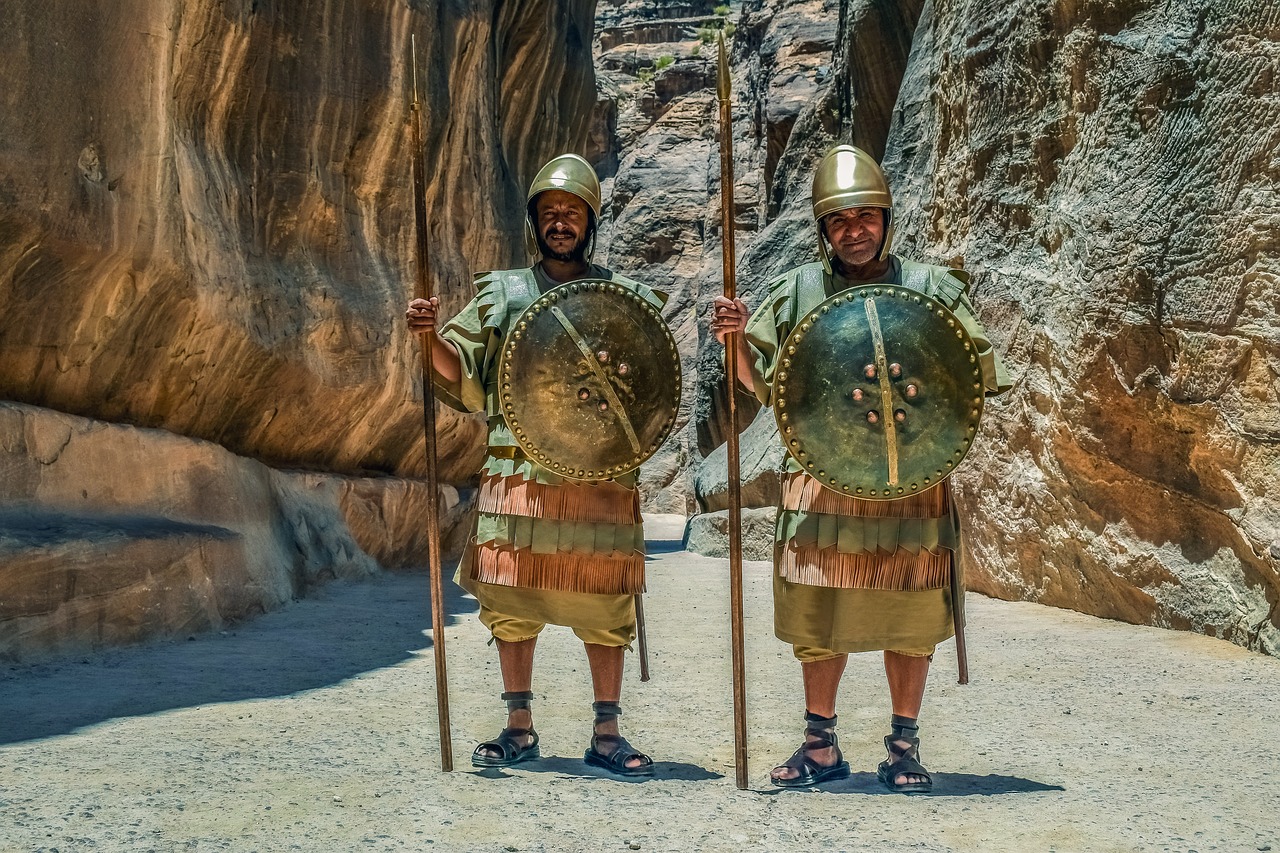Jordan Video
Cultural Sensitivities: Understanding Local Norms in Jordan
Jordan is a country in the Middle East that is rich in history and cultural heritage. As a traveler, it is important to be aware of and respect the local norms and customs to ensure a positive and respectful experience. This article will provide a detailed guide on the cultural sensitivities in Jordan, helping you understand and navigate the local customs.
Greetings and Personal Space
When meeting someone in Jordan, greetings are an important part of the culture. Men usually greet each other with a handshake, while women may greet each other with a hug or a kiss on the cheek. When greeting someone of the opposite gender, it is best to wait for them to initiate the greeting. Personal space is valued in Jordan, so it is important to maintain an appropriate distance when interacting with others.
- Handshakes: When greeting someone, a firm handshake is customary. It is polite to greet each person individually, even in a group setting.
- Gender-specific greetings: Men and women may have different ways of greeting each other. Follow the lead of the person you are interacting with.
- Respect personal space: Jordanians value personal space, so avoid standing too close or touching someone unless you have a close relationship.
Religion and Dress Code
Jordan is predominantly a Muslim country, and Islam plays a significant role in the daily lives of Jordanians. It is important to respect the local religious practices and dress modestly when visiting religious sites or public places.
- Islamic customs: Islam is the state religion of Jordan, and it is important to be mindful of Islamic customs and practices. For example, during the holy month of Ramadan, it is respectful to refrain from eating, drinking, or smoking in public during daylight hours.
- Modest dress: When visiting religious sites or public places, it is recommended to dress modestly. Women should cover their shoulders and avoid wearing short skirts or revealing clothing. Men should also dress modestly, avoiding shorts and sleeveless shirts.
- Mosques: When visiting a mosque, it is important to remove your shoes before entering and dress modestly. Women may be required to cover their hair with a scarf.
Food and Dining Etiquette
Food is an important part of Jordanian culture, and dining etiquette is taken seriously. Understanding the local customs and traditions will help you navigate dining experiences in Jordan.
- Sharing meals: Jordanians often share meals, and it is common for dishes to be placed in the center of the table for everyone to share. It is polite to wait for the host to start eating before you begin.
- Using your right hand: In Jordan, it is customary to eat with your right hand. The left hand is considered unclean, as it is traditionally used for personal hygiene.
- Accepting hospitality: If you are invited to someone’s home for a meal, it is considered polite to accept their hospitality. It is common for hosts to serve generous portions, so pace yourself and try a little bit of everything.
Gender Roles and Interactions
Gender roles and interactions in Jordan may differ from what you are accustomed to. It is important to be aware of these differences and act respectfully.
- Gender segregation: In some social settings, there may be gender segregation, with men and women socializing separately. It is important to respect these customs and avoid crossing any boundaries.
- Dress modestly: As mentioned earlier, dressing modestly is important, especially for women. It is respectful to cover your shoulders and avoid revealing clothing.
- Public displays of affection: Public displays of affection, such as kissing or hugging, are not common in Jordan. It is best to avoid such displays in public to respect the local customs.
Language and Communication
Arabic is the official language of Jordan, and while English is widely spoken in urban areas, it is helpful to learn a few basic Arabic phrases to communicate with locals.
- Basic Arabic greetings: Learning basic Arabic greetings like “hello,” “thank you,” and “goodbye” can go a long way in establishing a friendly rapport with locals.
- Polite language: Using polite language and addressing people with respect is highly valued in Jordanian culture. It is customary to use honorifics when addressing older people or those in positions of authority.
- Non-verbal communication: Non-verbal communication, such as gestures and facial expressions, can vary across cultures. It is important to be mindful of your body language and facial expressions to avoid any misunderstandings.
Local Customs and Taboos
Understanding and respecting local customs and taboos is crucial when visiting Jordan. Being aware of these cultural nuances will help you navigate the country with ease.
- Respect for elders: Jordanians have a deep respect for their elders, and it is important to show deference and listen attentively when they speak.
- Public behavior: Public displays of anger or frustration are generally frowned upon in Jordanian culture. It is important to maintain composure and remain calm, even in challenging situations.
- Photography: Always ask for permission before taking someone’s photograph, especially in more conservative areas or when photographing women.
Transportation and Tipping
When using transportation services in Jordan, it is important to be aware of local customs and tipping practices.
- Taxi etiquette: When taking a taxi, it is customary to negotiate the fare before getting into the vehicle. Tipping is not expected, but rounding up the fare as a gesture of appreciation is common.
- Public transportation: When using public transportation, it is important to respect the personal space of others and give up your seat to those in need, such as the elderly or pregnant women.
- Tipping: Tipping is not mandatory in Jordan, but it is appreciated for exceptional service. In restaurants, a service charge may already be included in the bill, so it is advisable to check before adding an additional tip.
Jordan Image 1:

Arts and Culture
Jordan has a rich artistic and cultural heritage, with various art forms and traditions that are worth exploring.
- Traditional music and dance: Jordanian music and dance are vibrant and diverse. Traditional performances, such as the dabke dance, are a must-see for visitors interested in experiencing the local culture.
- Handicrafts: Jordan is known for its beautiful handicrafts, including pottery, mosaics, and embroidery. Supporting local artisans by purchasing their crafts is a great way to appreciate the country’s cultural heritage.
- Historical sites and museums: Jordan is home to numerous historical sites and museums that showcase the country’s rich history. Exploring these sites and learning about the ancient civilizations that once thrived in Jordan is a fascinating experience.
Jordan Image 2:

Nature and Outdoor Activities
Jordan’s diverse landscapes offer a wide range of outdoor activities for nature enthusiasts and adventure seekers.
- Wadi Rum: Wadi Rum is a desert valley known for its stunning red sand dunes and rock formations. Exploring this unique landscape on a guided tour or camping under the starry sky is a memorable experience.
- Dead Sea: The Dead Sea, with its high salt content, allows visitors to effortlessly float on its surface. Enjoying a mud bath and experiencing the therapeutic properties of the mineral-rich mud is a popular activity.
- Petra: Petra, a UNESCO World Heritage Site, is an ancient city carved into the rock. Hiking through the narrow Siq and discovering the iconic Treasury is a must-do for any visitor to Jordan.
Jordan Image 3:

Conclusion
By understanding and respecting the cultural sensitivities in Jordan, you can have a more meaningful and enjoyable experience in this beautiful country. From greetings and personal space to religion, food, and transportation, being aware of the local customs will help you navigate Jordan with ease. Remember to dress modestly, be mindful of your language and behavior, and appreciate the rich cultural heritage that Jordan has to offer.
References
– visitjordan.com
– jordan.gov.jo
– petranationaltrust.org
– ahlanjordan.com


